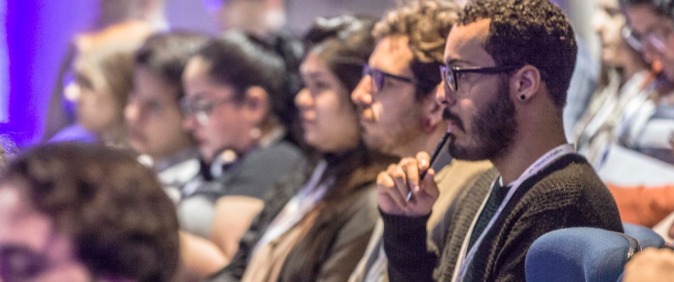- About
- Topics
- Story
- Magazine
- In-Depth
- Picks
- Opinion
- News
- Donate
- Signup for our newsletterOur Editors' Best PicksSend
Read, Debate: Engage.
| topic: | Democracy |
|---|---|
| located: | Brazil |
| editor: | Ellen Nemitz |
Since the beginning of Jair Bolsonaro's ascension in 2018, the fear of a new dictatorship began to spread. His defying speeches, the homage to the torture of political prisoners, the vast military staff of his government; everything was concerning. However, there was still something to rely on: the powerful Brazilians institutions, based on a post-dictatorship constitution. Two years later, the importance of an independent judiciary and a legislature committed to democracy is clearer than ever.
Bolsonaro seems to have no limits to protect his power and his sons, who are currently being investigated for corruption and involvement in fake news schemes. In response, he tried to change the Federal Police chief (responsible for investigating crimes such as corruption and famous for Car Wash Operation). When the president announced that wanted to dismiss Maurício Valeixo from the position, Sergio Moro – a former judge who became Justice Minister – resigned accusing Bolsonaro of illegal interference in investigations.
The farewell interview of the now-former minister fuelled the beginning of impeachment processes to be protocoled in Congress, led Moro to an official testimony (where proof was presented as he claims) and divided Bolsonaro supporters between those who believe in the president and those who believe in Moro. As Bolsonaro stepped forward and nominated the leader of the Brazilian Intelligence Agency (Abin, in Portuguese) and Alexandre Ramagem (a friend of his family) to be director-general of Federal Police, the Supreme Court decided to block the move due to the inter-personal relations and the public willing of Bolsonaro to have access to investigation reports.
According to professor of the Law Department at Parana Federal University, Egon Bockmann Moreira, the president has the right to indicate a name to strategic positions; however, he has limits. When Ramagem was nominated to charge Abin, personal motivations were unparallel to those seen in the case today. That is why the Supreme Court had to intervene. “One may not agree with it, but the decision was correctly taken: a request was submitted, the minister answered quickly, the sentence was fulfilled and is still up to appeal”, Egon explained to FairPlanet. On Monday, May 4, Bolsonaro chose Rolando Alexandre de Souza to lead the Federal Police, which has been labelled a trick to maintain his plans as Souza is close to Ramagem.
The tricks and attacks of the president seem to be far from the end. While Bolsonaro tries to install an autocracy, repeating “I am in charge”, the strong institutions that represent the country are our hope. Whether or not Bolsonaro is impeached, if our next leader is right or left-wing: a chief of state must be committed to politics and not hate; to democracy and people and not to his own family.
While our institutions, judiciary and legislature through the Supreme Court and the Prosecutor's Office, are being protected in their autonomy, the democracy is at least part shielded from abuse of power. Heloísa Câmara, a professor at the same department of Egon, highlights the importance of respecting the constituted laws, saying that “it may seem worth it to take a shortcut, but the law is the right way, even if it takes a longer time to solve the question.”
Image by NakNakNak

